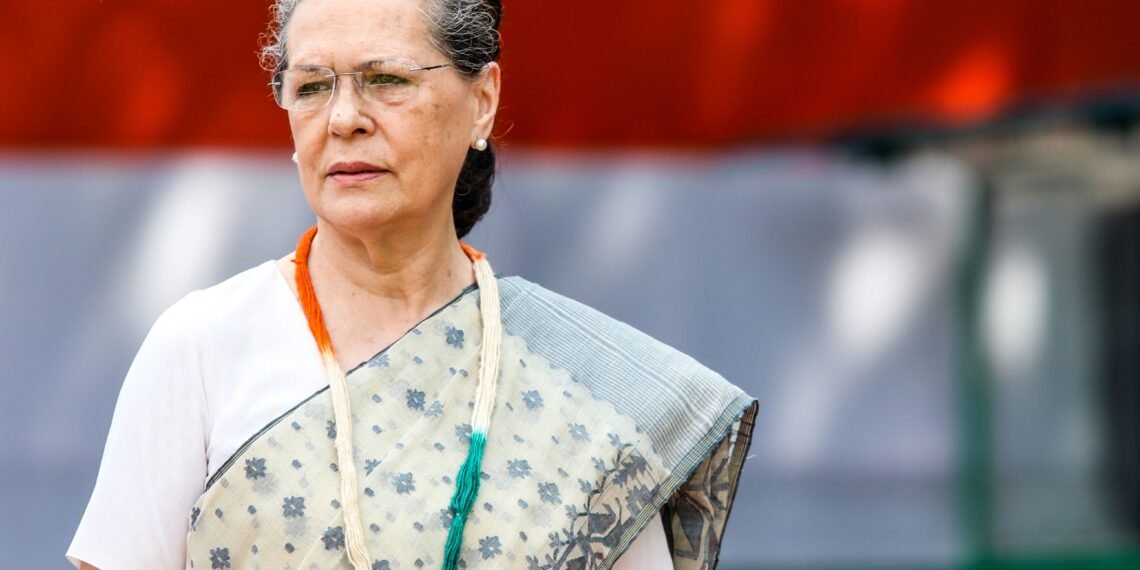The BJP has accused Congress leader Sonia Gandhi of co-chairing an organization that allegedly supported an independent Jammu and Kashmir and aligned with anti-India agendas. A detailed review of the Forum of Democratic Leaders in the Asia-Pacific (FDL-AP), however, finds no evidence supporting these claims.
BY Navin Upadhyay
The BJP has escalated its attacks on Congress leader Sonia Gandhi, accusing her of co-chairing an organization allegedly involved in supporting the independence of Jammu and Kashmir and propagating anti-India activities. These claims, raised by BJP leaders J.P. Nadda and Kiren Rijiju in Parliament, focus on Sonia Gandhi’s association with the Forum of Democratic Leaders in the Asia-Pacific (FDL-AP).
Founded in December 1994, the FDL-AP is a non-profit organization dedicated to promoting democracy and its fundamental principles across the Asia-Pacific region and beyond. Sonia Gandhi served as one of its co-presidents alongside globally renowned leaders such as:
Corazon C. Aquino, former President of the Philippines; Kim Dae-Jung, President of the National Congress for New Politics, Oscar Arias Sanchez, former President of Costa Rica
The FDL-AP also included an illustrious roster of honorary advisors, including Aung San Suu Kyi, Desmond Tutu, Mikhail Gorbachev, and Richard von Weizsäcker—figures recognized worldwide for their contributions to democracy and human rights.
The BJP claims that the FDL-AP promoted an anti-India agenda and aligned with Pakistan’s perspective on Kashmir. However, a comprehensive review of FDL-AP’s publicly available documents, particularly the section titled “Crisis in Kashmir,” reveals no evidence supporting these assertions. Instead, the materials are largely archival, dating back to the 1990s, and authored by a wide range of contributors. Key highlights include:
An article by Padmanand Jha, published in the October 1998 issue of Outlook, titled “Till Freedom Comes,” discussing a public opinion survey conducted in Kashmir during a turbulent period.
Editorials from The New York Times (June 28, 1998) and The Statesman (May 30, 1998), offering nuanced takes on Kashmir without advocating for independence or aligning with Pakistan’s stance.
A presentation by Kathy Arlyn Sokol at the UN Hague Appeal for Peace Conference in 1999, titled “From Cantonments to Cantons: A Modest Proposal for Kashmir.”
An article titled “Independent Jammu & Kashmir: Justifications & Advantages” published on Kashmir Online.
Nobel laureate Jose Ramos Horta contributed a piece on the general principle of self-determination, but it does not explicitly endorse any position on Kashmir. Additionally, an interview with Imran Khan critiques corruption within Pakistan, further undermining the claim that the organization supported Pakistan’s viewpoint.
Discussions on governance and democracy in India, such as an interview with India’s Dr. Ashok Khosla advocating for direct democracy, add to the diversity of perspectives without any indication of anti-India sentiment.
Sonia Gandhi’s role: Nowhere in the FDA-LP page of Kashmir has Sonai Gandhi made any comment or contributed any views or write-up.
Allegations of Links to George Soros
The BJP has also sought to link the FDL-AP to entities associated with philanthropist George Soros, portraying him as a sinister figure akin to a wanted terrorist or drug lord. However, Soros, a Holocaust survivor, is widely recognized for his efforts in supporting democracy, free press, and anti-apartheid movements globally.
In 2021, Forbes named Soros the “most generous giver,” highlighting his philanthropic contributions of approximately $34 billion toward health, education, and democratic movements worldwide. At 94 years old, Soros’s age make allegations of destabilizing India implausible.
Conclusion
A thorough examination of the FDL-AP’s records and associations provides no credible evidence to support the BJP’s claims of anti-India activities or pro-Pakistan agendas. The allegations appear to rely on tenuous links and mischaracterizations..














